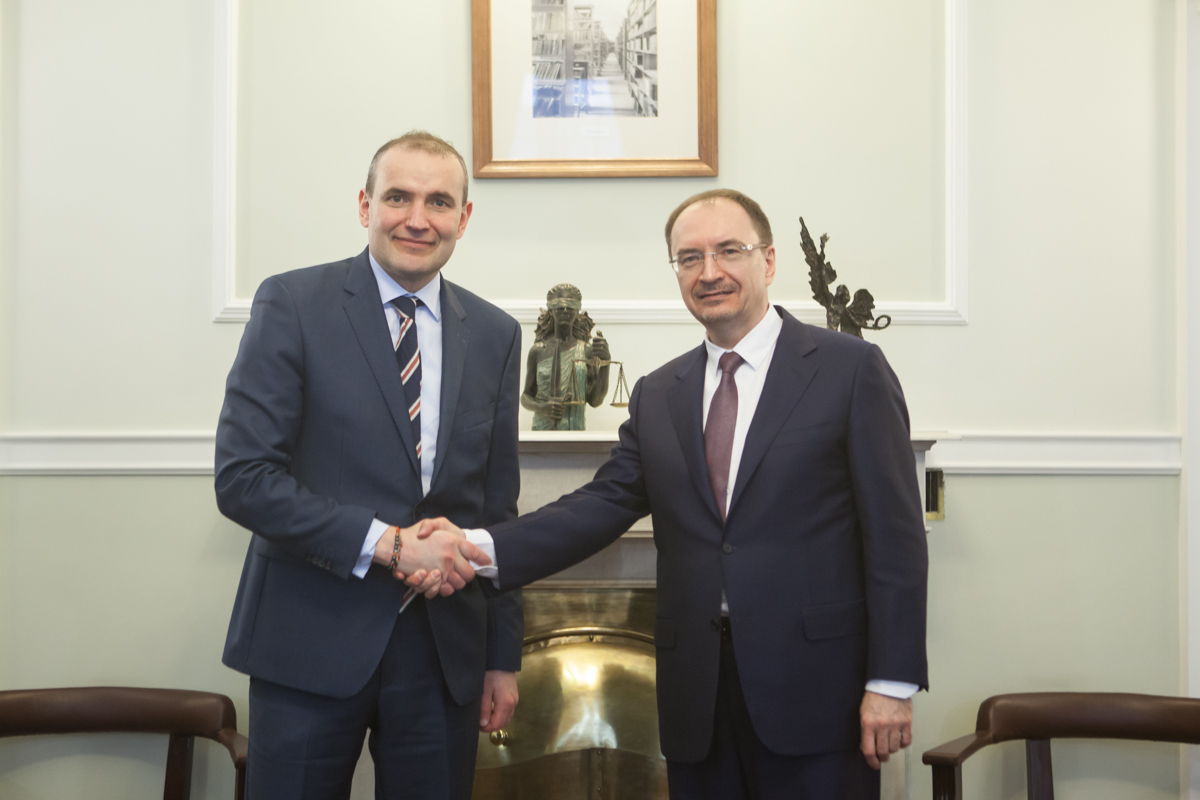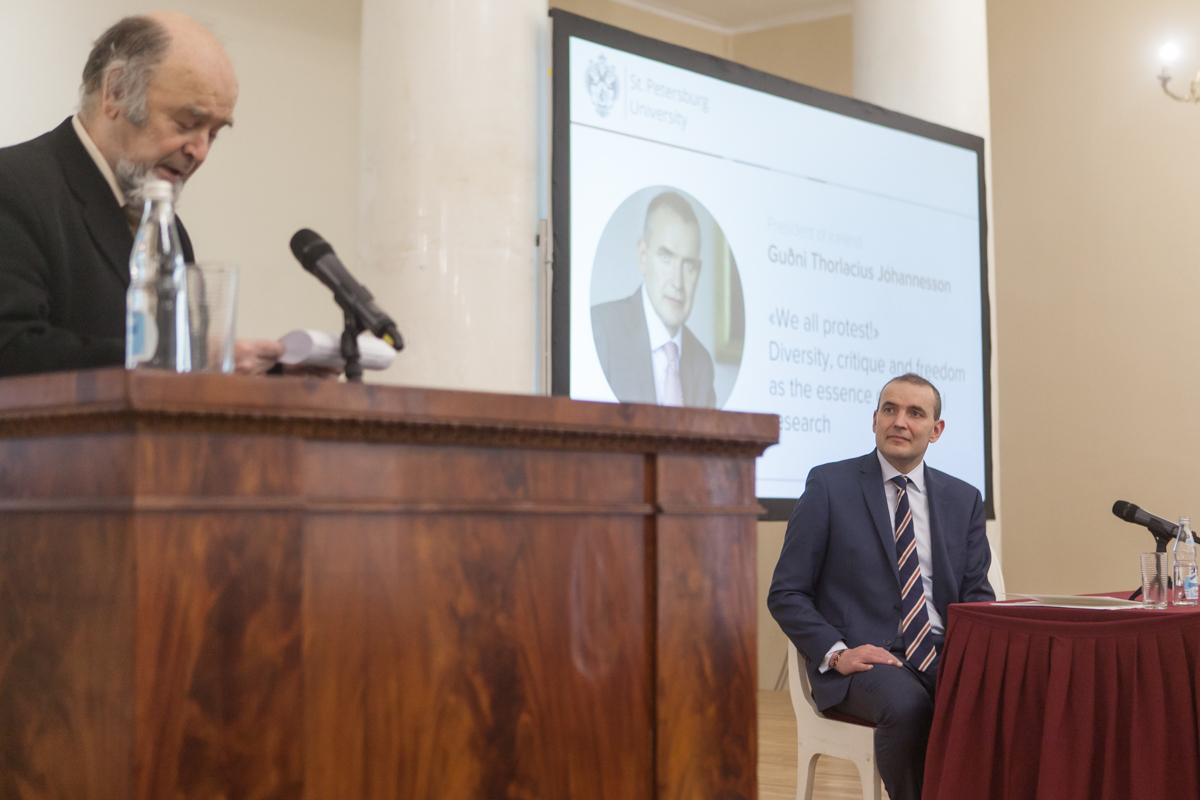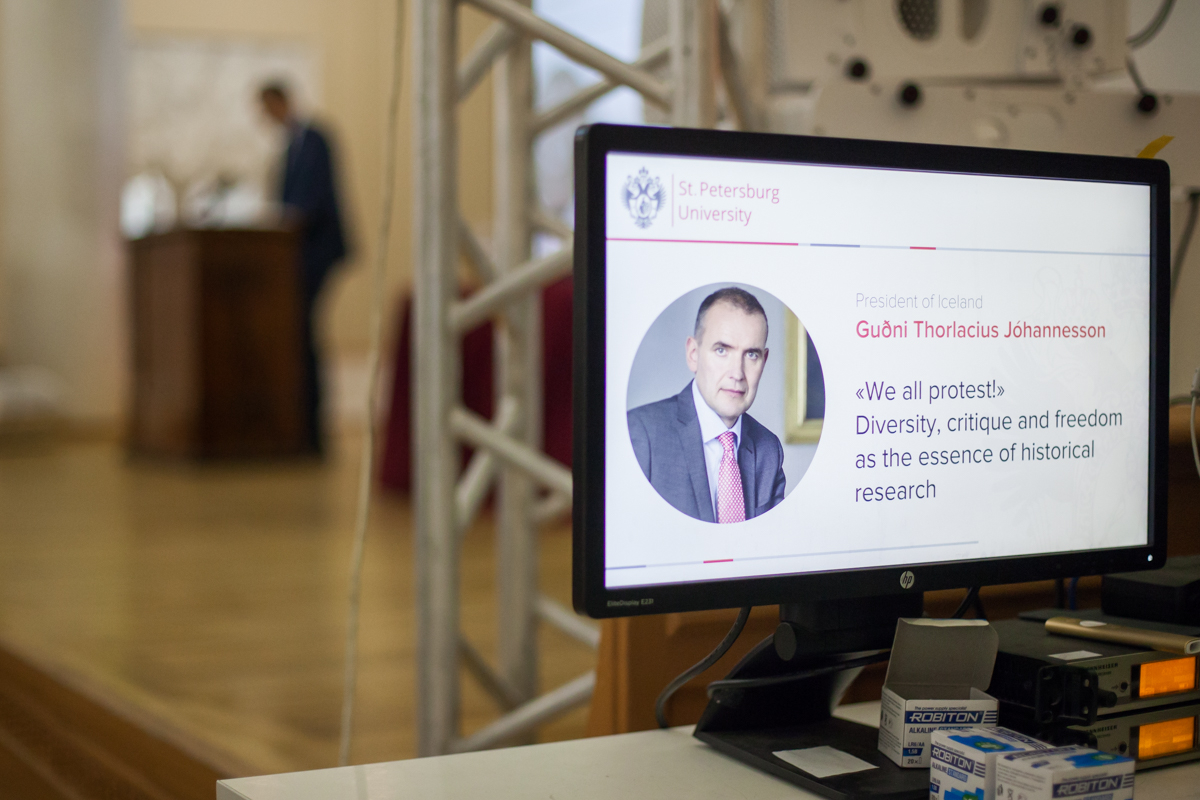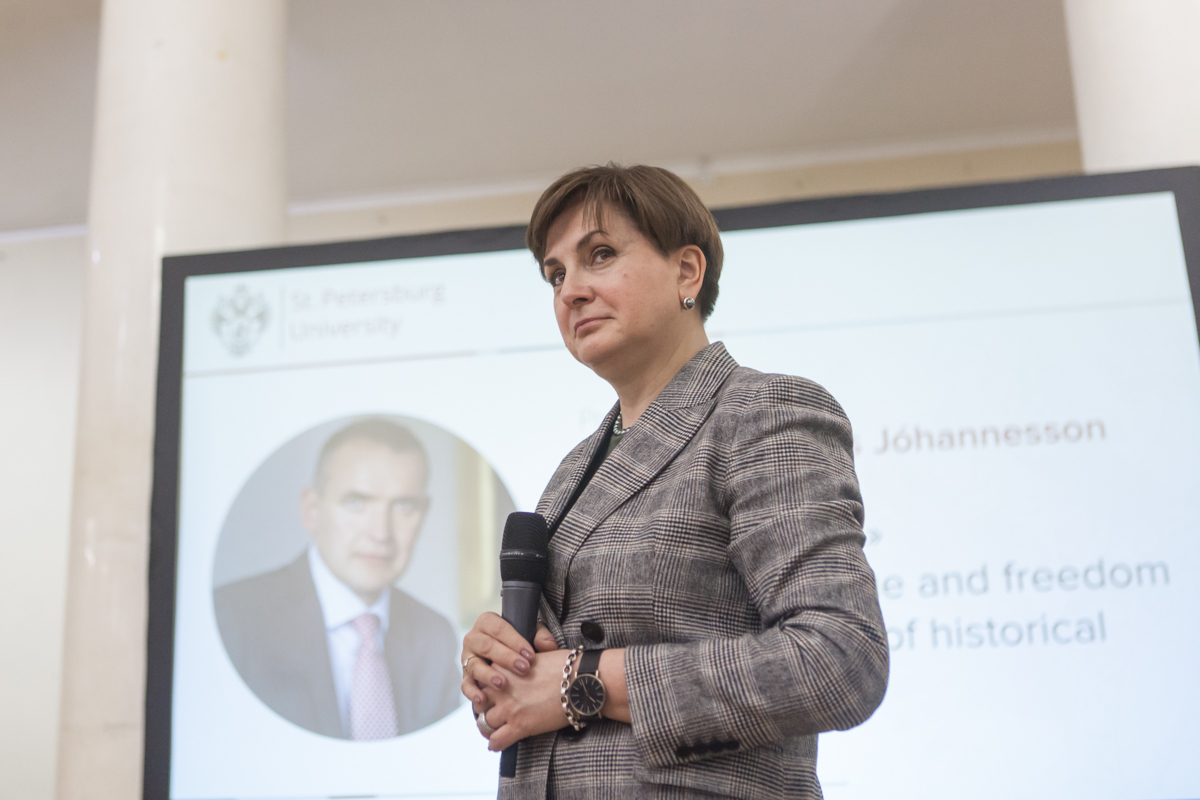Iceland’s President tells us about national heroes, peaceful protests and his dream of becoming an athlete
The President of Iceland, Guðni Thorlacius Jóhannesson, delivered a public lecture ‘”We all protest!” Diversity, Critique and Freedom as the Essence of Historical Research’ at StPetersburg University.
A former professor of history at the University of Iceland is Iceland’s current head of state. He told us about the foundations of the national unity of the people living in the Land of Ice and Fire, based on history, language, tolerance and freedom.
Guðni Jóhannesson has been the President of Iceland since winning Iceland’s presidential elections in 2016. He received a PhD in history and taught at the University of Iceland, the University of Reykjavik, Bifröst University, and the University of London. He also worked as a journalist.
President Jóhannesson greeted audience members in Russian: he revealed that he used to study Russian and considers it a very beautiful, yet very difficult language to learn.
In his lecture, he highlighted one of the most significant events in the history of Iceland, which is a relatively young nation — the declaration of independence. Iceland became an independent republic on 17 June 1944. But long before this historic day, in the 19th century Jón Sigurðsson (1811–1879), a scholar and the leader of the Icelandic Literary Society, became the leader of the Icelandic independence movement. He also drafted the Constitution of 1874 which formed the basis of the current Constitution of the Republic of Iceland.
St Petersburg University offers degree programmes in Scandinavian languages and cultures. For the academic year 2019/2020, these include Bachelor programmes: ‘Norwegian’ and ‘Swedish’, as well as a Master programme — ‘Linguistic Aspects of Scandinavian and Dutch Studies.’
Later on, Jón Sigurðsson was to become Iceland’s national hero, often referred to as the ‘Father of the Fatherland’ and ‘President Jón’ even though he never became president of independent Iceland. Remarkably, 65 years after the death of Jón Sigurðsson, his birthday, 17 June, was chosen as Iceland’s National Day.
Guðni Jóhannesson described in detail the fundamental principles by which the people of Iceland have been living in harmony and peace for many decades. These fundamentals include protests, diversity of opinion, and freedom of speech. For this reason, in Reykjavík, at the foot of Jón Sigurðsson’s statue on parliament square, not only national holidays are celebrated, but also numerous protests are held. ‘Nonetheless, we should not forget that historical and cultural heritage must be respected by all citizens – including protesters,’ emphasised the speaker.
At the end of the lecture, there were questions from the audience. In particular, members of the audience were interested in Iceland’s latest direct democracy developments, the problem of ‘rewriting’ history, and the phenomenon of peaceful protest. In response to a question about the essence of nationalism, President Jóhannesson noted that there is not much use in viewing the emergence of nationalist movements from the standpoint of history; instead, it is advisable that we analyse people’s perceptions of the present, as well as their intentions regarding the future. When posed with a question about the role of the individual in history, the President attempted to compare Russian and Icelandic views on this matter.
‘I don’t like making generalisations. Yet, it seems to me that people in Russia believe in fate: “come what may.” This may be the reason why Russia always needs a strong leader. Yet we all must believe in ourselves, knowing that not every dream will come true and we will always be affected by decisions and desires of other people. For instance, I always wanted to be a professional athlete, but, as you can see, that didn’t work out.’
President of Iceland Guðni Thorlacius Jóhannesson
In answer to the question ‘What unifies Icelanders today?’ Guðni Jóhannesson explained that about 10 per cent of Icelanders are born abroad. ‘Today, it is not skin colour or religion that unites us, but the fact that we are willing to live in peace and harmony with others,’ concluded the President.
At the request of the audience, President Jóhannesson recited a verse in his mother tongue. Marina Lavrikova, Senior Vice-Rector for Academic Activities and Teaching Methods of St Petersburg University, noted that some members of the audience were able to understand Icelandic perfectly well — these are students and professors of the Department of Scandinavian Studies. Then she invited on stage Associate Professor of St Petersburg University Boris Zharov. Boris Zharov is a well-known philologist, the author of more than 150 works on languages, literature and culture of the Nordic countries. Recently he has been awarded a medal ‘For Friendship and Cooperation between Iceland and Russia.’ Speaking in Icelandic, Boris Zharov briefly outlined the history of the Department of Scandinavian and Dutch philology at St Petersburg University and told President Jóhannesson about the ongoing projects and activities of the department.
In the closing of the meeting, Marina Lavrikova thanked our distinguished guest for the interesting lecture and lively discussion, and also expressed the hope that this would not be his last visit to St Petersburg University.





